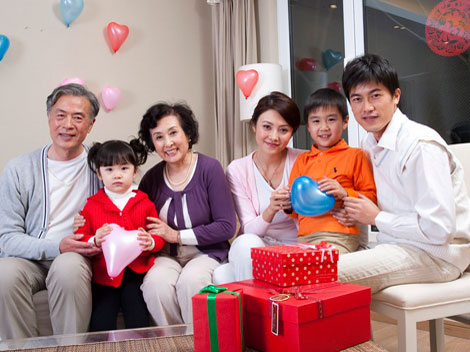| Home > Living In China |
Family Relations and Names in China

Although Chinese embraces the concept of equality between man and women, traditionally Chinese families have followed patriarchal lines. The Chinese extended family tends to be more significant in life than that of Western cultures, and thusly the different relationships are further distinguished than they are in English. When speaking for siblings, Chinese people almost always refer to them in respect to being older brothers and older sisters or younger brothers and younger sisters. The same differentiation occurs among aunts, uncles, cousins etc. Chinese relatives are even further divided by paternal relatives and maternal relatives. Grandparents, uncles, aunts, in-laws etc. on the father's side have different tittles than grandparents, uncles, aunts, in-laws etc. on the mother's side.
Chinese names are given in the reverse of Western names. The surname is said first, and then the given name. For example, Bruce Lee, Lee is his surname and spoken first. The given name (Little Dragon) is spoken secondly. Professional, social, and family tittles always follow the name as well. The titles Doctor, Master, Professor, or Teacher would follow the surname or full name. Dr. Huang would be Huang Yi Sheng (Huang Doctor- Mandarin pinyin). Likewise Xiansheng (Mr.) and Taitai (Mrs.) are said after the surname.
Familial terms can also be added to the surname of someone not related to impute to them a special closeness or relationship to the speaker. Little children are often told to address elders as "older brother" "older sister" "aunt" or "uncle". In this case the family title can either be used alone, or be added to a person's surname.
Custom
 more
moreWeb Dictionary
Primary&secondary
Beijing National Day School
Beijing Concord College of Sino-Canada
Brief Introduction of BCCSC Established in the year 1993, Huijia School is a K-12 boarding priva...Beijing Huijia Private School





 print
print  email
email  Favorite
Favorite  Transtlate
Transtlate 







